Featuring contributions from Adam Burt, Taya B, and Myles Broomes.
It’s that time again. As 2024 draws to a close, the industry has begun to reflect on the past twelve months, and which games have made the biggest impact this year.
Here at Etch Play, we like to celebrate success too – particularly those perfect moments where everything comes together, across the entire business of making games, and combines to create a hit videogame that everyone can enjoy. But we also care deeply about the industry-at-large, and are particularly interested in what these success stories can tell us about the current state of gaming, as we look ahead to 2025.
With that in mind, welcome to our Games of the Year article! We’ll be sharing a handful of titles that stood out to us this year, and basically giving you recommendations for great games to check out over the holiday season – not necessarily the biggest sellers, but the games that meant the most to us. And crucially, we’ll also be putting them into context. What can we learn from these games? What do they say about where we, as an industry, are headed? Let’s begin!
The Past, Present, and Future of Xbox
In Dungeons of Hinterberg, people from all over the world descend on a small town in the alps in order to try the world’s most exciting new hobby – exploring magical dungeons. It’s a setup which makes for a breezy, cozy action RPG - which is big on chill vibes, and light on the kind of overwrought grim-darkness that you typically find in games that involve exploring caves looking for monsters you can stab to death.
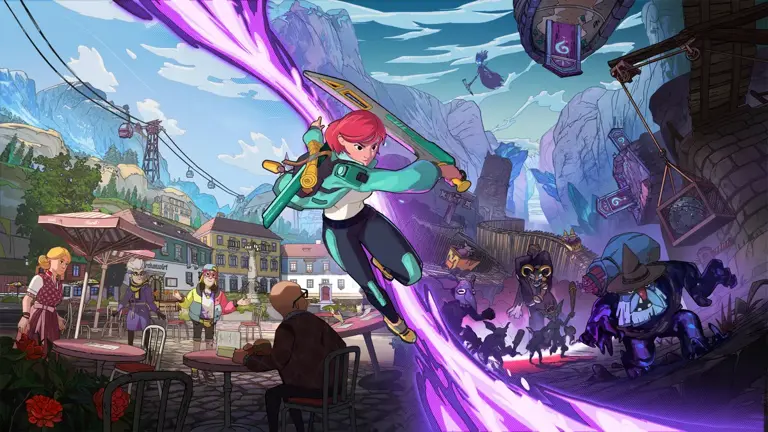
It works. It’s elevated too, by a bold look and tight writing, both of which are reminiscent of A Short Hike, and the gameplay has enough variety to satisfy all kinds of players, whether they like to hack and slash, explore worlds looking for collectibles, sit by the campfire chatting to characters, or a mix of all the above. It arrived this summer as a Day One release on Xbox Game Pass, and it’s a fantastic addition to the service – a shining example of a smaller title given a broader lease of life and bigger playerbase by virtue of being part of the Game Pass ecosystem. There are many examples of games like Hinterberg, and Game Pass is, generally speaking, a huge success. But in a weird sort of coincidence, I think the game serves as a metaphor for Microsoft’s handling of Xbox.
Much like the Mayor in Jaws, the Mayor of Hinterberg is so keen to bolster tourism and make money, that she never stops to consider important safety considerations. There’s no real thought as to how dangerous it might be to invite all the people in the world to come and play with powerful magic. Simply put, she’s reckless, only pursuing the money immediately in front of her without considering what might happen in the long term. And after a number of high-profile missteps in the last generation… Let’s just say analysts may now be wondering too about the wisdom of Xbox’s current strategy, with a reckless attitude to what it might mean for the longevity of the Xbox brand.
Some will say this was always going to happen – the move towards Game Pass follows a trend across entertainment at-large, which is moving towards subscription rental models and away from traditional ownership. But this change in focus for Microsoft has seismic ripple effects on the Xbox business, which now finds itself poised to pivot further away from focusing on consoles, to focusing purely on selling subscriptions and games.
This change has begun to materialize in their advertising, which goes to great lengths to say that you can play Xbox games on non-traditional console devices – on Samsung TVs, on Android phones, on ASUS handheld PCs, etc – but the biggest change, and one that will potentially have the biggest impact in future, is that Xbox games now appear on other games consoles like PlayStation, formerly seen as a bitter rival.
It remains to be seen how exactly this shift will affect the overall console market. For now, Xbox are saying that they will continue to produce and sell high-end hardware. But it begs the question – in the next generation, will consumers buy expensive new Xbox machines, when they could buy a PlayStation instead, and enjoy the product libraries of both Sony and Microsoft on one device? In the long term, it’s hard to see Xbox consoles surviving this transition. If the Game Pass gambit pays off, Microsoft may not even care whether console sales are part of the equation. But the marketplace thrives on competition, and it will have negative consequences for the entire industry if Sony is gifted the console marketplace and left to rule it, unopposed.
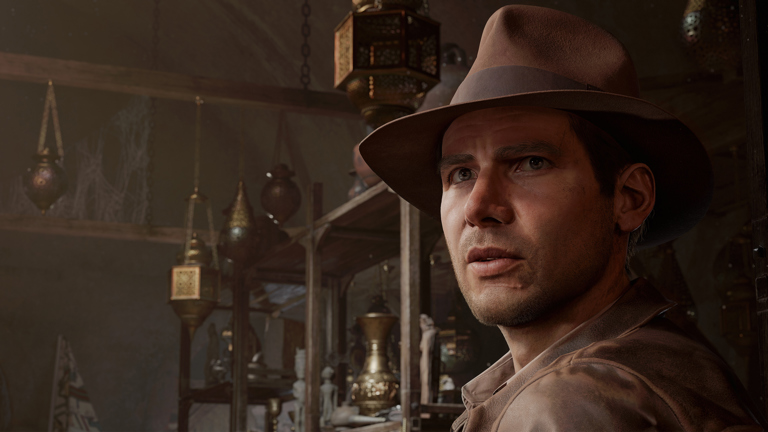
Xbox’s one big hit this year, from a critical acclaim perspective, is Indiana Jones and the Great Circle. The cinematic stealth adventure from MachineGames is a real achievement, boasting not just stellar graphics but clever game design touches throughout. In effect, it creates a new genre – blending elements of games like Hitman and Dishonored to create an experience which really feels like living out one of the films. It’s exactly the sort of success that Xbox needs, and yet this too is set to come out on PlayStation 5 next year. Will this approach pay dividends for Microsoft, and/or spell long term disaster?
From Indy, to Indie
Unless you’ve been living under a rock, you’ve probably noticed that behind the scenes, the games industry has been in continued financial turmoil this year. Downsizing and rampant layoffs have been commonplace, and mass redundancies are doing serious long-term damage to the artform of games, as many talented creatives are forced out of the industry in search of more stable employment.
The macroeconomic factors driving these conditions affect developers of all sizes – big players have shrunk, mid-sized teams have been decimated or closed, and small teams, already operating on the leanest budgets, have been left out in the cold without the typical levels of publisher investment.
Perhaps that is why one of the biggest games of 2024 is a small game, made by a single person. Balatro is an absolute phenomenon, an addictive card game that could only exist digitally, as the kings, queens, jacks and numbers you draw get increasingly warped in fun and novel ways - primarily through a system of unlockable joker cards, that change the way you play every time you start a new round.
Functioning as a sort of roguelike solitaire, the mix of luck and choice creates an addictive experience that can be enjoyed in short bursts on your phone, or be played for hours on a TV. It’s a distillation of concepts that have been deployed well in older games like Dicey Dungeons or Slay the Spire, but has been mixed with new elements, and has broken through to a mass market in a way that few titles ever manage.
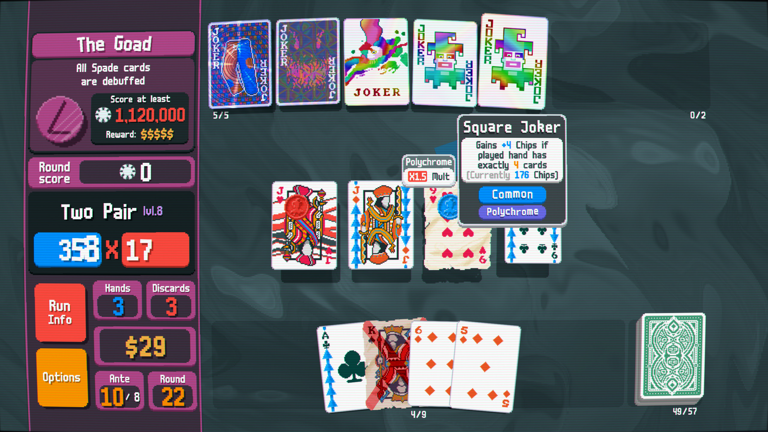
Indie titles like Balatro are an underappreciated bedrock that grounds our industry, with developers taking an enormous amount of relative risk. For every Balatro, there are thousands of projects that fail to hit the mark, or worse, fail to receive the acclaim or sales that they might deserve. It stands in stark contrast to the understandably risk-averse approach to game making which has become so prevalent at many bigger studios and publishers.
The success of low-fi smaller titles like this is indicative of a large appetite in the games marketplace, albeit a difficult one to tap into. Big budget AAA titles still dominate the headlines, but the market for games like Balatro is there too, and although becoming a breakout hit is easier said than done, with the right combination of choices, and a bit of luck, it can happen. Last year it was Vampire Survivors, which achieved similar market performance and acclaim. This year it was Balatro. What might it be in 2025?
Here be dragons
At the AAA end of the spectrum, despite an aversion to risk, and despite focus-testing every concept to death, big titles still face a difficult path to market. To launch a high profile game in 2024 means courting public opinion, and public discourse has seemingly never been as poisoned, angry, and divided as it is now. Where once a network like Twitter would be seen as a useful tool in a marketer’s arsenal, it is now a potential threat, a place where legitimate criticism is often drowned out by targeted hatred.
One game on the receiving end this was Dragon Age: The Veilguard, a game which has nevertheless made our Games of the Year list by virtue of its many strengths. This divisive title, from industry darlings Bioware, is a Dragon Age sequel which sheds some of Dragon Age’s legacy, for better and worse, in search of a Mass Effect 2 style romp with familiar fantasy trappings.
Some of the criticism it has received is legitimate – those hoping for a game that religiously stays true to the Dragon Age tone of old will potentially be left wanting by a writing style that skews closer to a modern Marvel movie. However, while the writing style is different, it does find its footing and delivers the goods. At times funny, and at other times heart-breaking, Veilguard has continued the series' underlying legacy of telling epic, world-spanning stories in a relatable way.
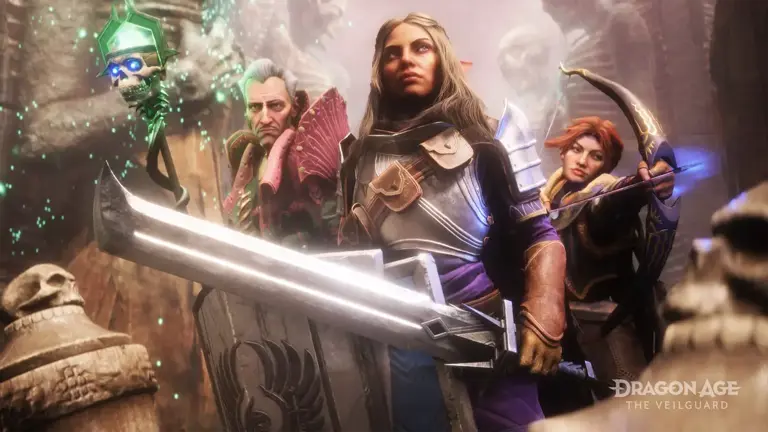
And more broadly, Dragon Age delivers a moment-to-moment gameplay experience which ranks as one of Bioware’s best, particularly when it comes to hack and slash battles. The snappier, action-based combat feels more "in-the-moment" and frantic. The exploration is tighter, without compromising on hidden secrets, or opportunities for world and character-building. The decisions, though there are fewer of them, still feel like they have weight.
The changes may seem extreme and unwelcome to many fans of the genre, but I think for me Dragon Age is all about what it makes you feel. In over 100 hours with the game, I've completed it twice - and in that time I've felt a lot; I laughed, I cried, I got angry with my favourite characters, and learned to love my least. A perfect Dragon Age game for me, and the only game that could be my Game of the Year in 2024
— Taya B
It's hard to know for sure how much, or how little, the so-called “culture war” social media environment, prevalent on both Twitter and YouTube, is contributing to the real-world success of individual titles. Word of mouth is clearly important, and many words come from many mouths on platforms like these, so some level of impact can be assumed. But what is clear is that the trajectory of these networks, as they have continued to evolve into highly optimized breeding grounds for outrage and hate, makes them increasingly hostile places to discuss games - and for studios and publishers trying to connect with potential fans. Despite the rise of competitors – in Twitter’s case, very successful rivals Threads and BlueSky exist – there’s enough cultural inertia to make them still relevant, and a disappointing lack of light at the end of the tunnel in terms of where publishers should focus their community building efforts in the year ahead.
Franchises Still King
Some franchises are just unstoppable. No matter how much online criticism they may receive. For example, Pokémon is the phenomenon that keeps on giving. One would think that by now there must have been a Pokémon game in every genre of game ever made, but surprisingly, this year brought us Pokémon TCG Pocket, a digital card game for mobile based on the collectable cards that became a worldwide sensation in the 1990s – and it somehow feels new.
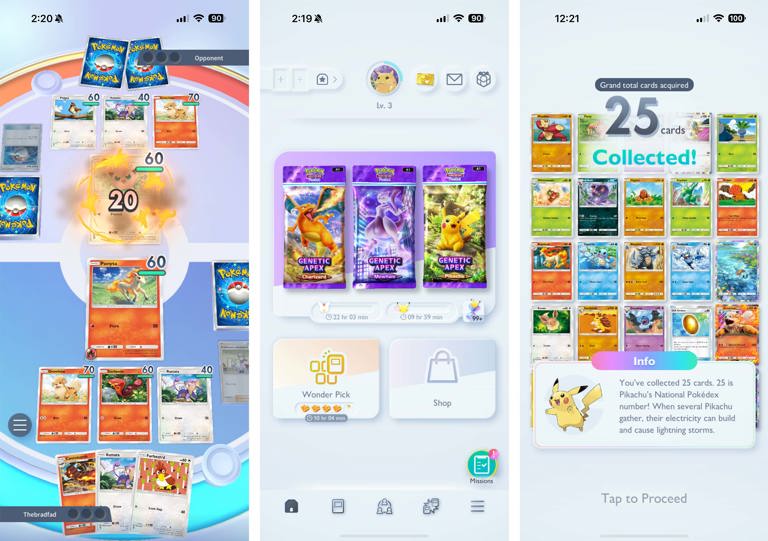
Owing more than a little to Marvel Snap, Pokémon TCG easily taps into the addictive nature of collecting things, trades on a lot of nostalgia, and adds in a quick, easy-to-grasp battle system. It all makes a surprisingly effective total package.
The emphasis is on card collection - with the phrase "Gotta catch 'em all", already a deeply rooted part of Pokémon branding, manifesting as a rallying cry yet again. New cards come thick and fast, and in a variety of attractive styles, signifying a level of rarity and supposed scarcity. And as with Marvel Snap before it, the game encourages spending without ever veering into pay-to-win territory, by allowing fans to spend money on collecting cards and variants quicker, without locking away all the best stuff.
The success of TCG Pocket (side note: the name of this game is such a mouthful... What happened to the snappiness of titles like Pokémon Go?) underlines an important, if obvious, point about the next few years for the industry: Huge IP is here to stay, and so are mobile games with thorough monetization strategies.
Auteurs Lead The Way With New IP
There are a number of ways to approach risk, as a games business. And across the product landscape this year, we’ve seen a lot of those techniques manifest. Remasters and remakes continue to be an attractive option for many. And beyond that, relying heavily on existing intellectual property is still par for the course.
Those who opt to create new IP do so mostly under one of two conditions: With a studio that is considered heavily bankable, or better yet, with a visionary auteur.
Metaphor: ReFantazio, directed by Katsura Hashino, is one such example. From the team (and the director) behind Persona, Metaphor is an RPG which lives up to the title, seeking to explain our real world by contrasting it with a rich and magical fantasy country called Euchronia.
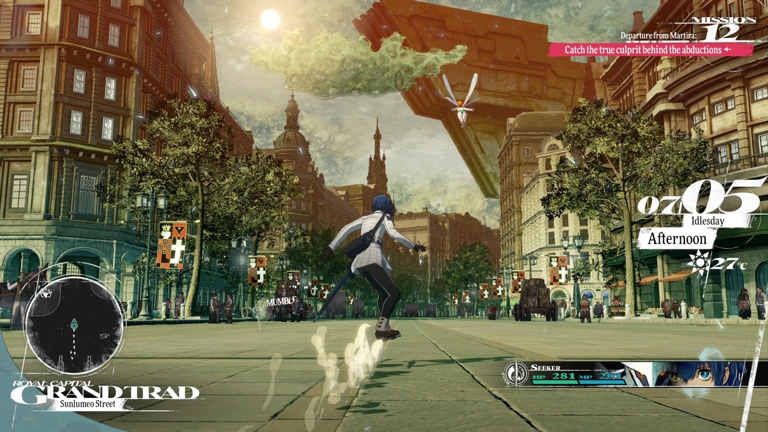
It plays like a standard turn-based RPG, but there’s real depth in the strategic mechanics, and production quality present in every facet – from the incredible music, to the fully realized, wonderful cast of characters. It's a real joy to master various classes (or "Archetypes", as they're known in-game) with each party member, then spend time planning how to approach a difficult encounter, and watch your plan unfold perfectly.
I spent over 100 hours playing Metaphor: ReFantazio and I absolutely loved every single second of that time. The story deals with some heavy themes such as racial inequality but does a great job in doing so. It’s an incredibly satisfying game, and the best one I’ve played this year.
— Myles Broomes
In Conclusion
It’s been a difficult year for games businesses. While there have been dozens of fantastic titles released this year, there’s no denying that funding game development, creating games, shipping them, and selling them has become an even bigger challenge.
With that in mind, it seems unlikely that anyone will look back on 2024 as a particularly good year for the industry at large. Nevertheless, our games of the year, and any other titles that have achieved great success this past twelve months, are a testament to the creative potential of games and the people that make them.
And we can't wait to see what 2025 will bring next.

